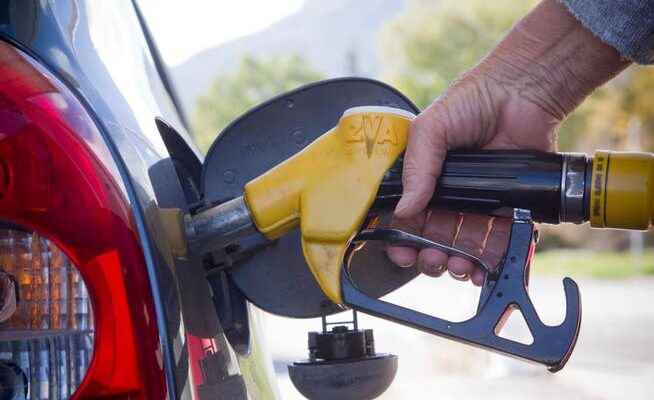France lowers the price of petrol by up to 30 cents per liter. This does not go unnoticed by Swiss motorists – much to the annoyance of a Savoyard senator. A Geneva State Council countered.
Anyone who drives across the border to fill up is currently saving money.
Romandie has its summer theater. French Senator Loïc Hervé and Geneva State Councilor Mauro Poggia play the leading roles. The script is simple and guarantees polemics: is it legitimate for Swiss motorists to benefit at the expense of French taxpayers?
In fact, even more Swiss motorists are currently driving across the border to France than before. The reason for this is a measure taken by the French government: In order to curb the fuel price, which has skyrocketed in the wake of the Ukraine war, it has been granting a discount of 18 cents per liter of petrol or diesel since April. In addition, the franc, which has recently strengthened against the euro, makes tank tourism even more attractive.
A liter of petrol in France currently costs around 1.70 euros, around 50 centimes less than in Switzerland. Nota bene, in the canton of Geneva, which is almost completely surrounded by France, many don’t want to miss out on the “bargain” – because everyone is the same at the pump, regardless of where they live. Pictures of filling stations near the border also show a high proportion of Swiss license plates. Then there are all those who live in France but work in Switzerland.
The Swiss “Friends”
The Swiss tank rush has not escaped French politicians. Senator Loïc Hervé from Haute-Savoie was the most polemical. He told France 3: “We shouldn’t support the rich, our Swiss friends or foreign tourists, but working French people. As simple as that.”
In Hervé’s defence, it should be noted that the Center Party MP had already advocated in the French Parliament that the rebate should only be granted to those of modest financial means. The Republican-dominated parliamentary majority, however, pushed through the watering can principle.
The “Storm in the Petrol Can”
However, Hervé’s words were not particularly well received in Switzerland. Geneva’s State Councilor Mauro Poggia first commented on Facebook and then doubled over to RTS, “Tribune de Genève”, “Le Matin” and the western Swiss edition of “Blick”. The trained lawyer was not lacking in rhetorical fire.
The discussion is about a “storm in the petrol can,” Poggia sums up. For decades, the French came to Switzerland to fill up because the price was cheaper here. If it’s different, it’s suddenly a problem. “If you were to list all the pros and cons for one and the other, the balance for the French state would not be positive,” said Poggia.
The representative of the Mouvement Citoyens Genevois (MCG) party, which is critical of cross-border commuters, refers to the extremely close exchange that his canton has with the French countryside. The Lake Geneva region has no fewer than 140,000 people living in France and working in Switzerland. The higher wages mean that the French border region is one of the richest regions in France with unemployment well below average.
“How would the SVP have reacted?”
In addition, the French state allows huge shopping centers to be set up right next to the border. Normally in France “of course no one has anything against it” that the Genevans leave their money there in bulk. As soon as there is a problem, the neighboring country is only concerned with its own advantage. “You can’t work together like that,” says Poggia. You shouldn’t always just talk about the “Greater Geneva area” when it suits you.
The French state allows the fuel concession to cost 4.4 billion francs by forgoing part of the tax revenue. Senator Hervé would therefore consider it a sign of “solidarity with the neighboring country” if Swiss motorists held back on their own accord. “What would have been the reaction in Switzerland, especially from the SVP, if the situation had been reversed? Certainly less moderate than mine,” says Hervé.
The discount is now increased
Only a “tiny portion” of the billion-dollar subsidy benefits Swiss drivers, counters Poggia – and recalls that the canton of Geneva transfers over 300 million francs to the French border regions every year in order to finance infrastructure measures in connection with the intensive border exchange.
The Swiss-French polemic will subside again. Tank tourism, however, is likely to increase from September – for two months, France even grants a discount of 30 cents per liter at the pump.
